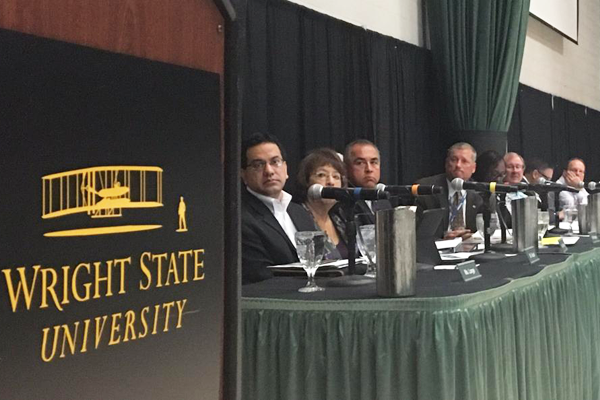
Excerpt from the Dayton Daily News
Wright State University trustees called a proposed strategic plan presented by the school’s president “generic” and said more specifics are needed before they vote on it in a matter of months.
President Cheryl Schrader gave trustees on Friday an update on the strategic plan, which included proposed mission and vision statements for the school as well as outlines for Wright State’s future.
The proposed mission statement reads that Wright State empowers “all students and graduates to realize their full potential,” while the vision statement reads that WSU is “known for teaching, research, innovation and application.” Trustees criticized the proposals as “overly-broad” and “generic.”
“If you pull up the vision and mission statement of 100 universities across the country, they’re probably not much different than this,” said trustee Bruce Langos.
Several other trustees echoed Langos and said that proposals reflect the same way the university has approached higher education for its first 50 years. Instead, Langos said, Wright State’s leaders need to “reinvent the university.”
Trustees said the university needs to pick a few programs and areas that it can become known for. Trustee Sean Fitzpatrick said that the university should focus on the fields of science, technology, engineering and mathematics and degrees that can get graduates jobs, such as accounting.
"There’s not necessarily anything in here that I would disagree with but…I find it to be generic and I think it could benefit from being more specific,” Fitzpatrick said.
Wright State trustees have expressed a desire for the university to establish a detailed path forward after recent financial issues. Trustees slashed more than $30 million from the school’s budget in June 2017 and approved a budget this year that projects another $10-million decline in revenue.
The new strategic plan, which trustees could vote on in October, will be designed to guide Wright State through 2025.
Schrader told trustees that the finished plan will target specific groups of students and will take advantage of the university’s partnerships with local businesses and industries. Wright State’s attention should be focused on how to create an educated workforce for the Dayton region, Schrader said.
“Not only can we not be everything to everybody but we can’t do everything ourselves,” Schrader said.
The strategic plan’s values are meant to be broad so that they “resonate” with the majority of the campus community, management professor David Bright told trustees. Bright is leading the strategic planning process with Schrader and Michael Wiehe, director of Wright State’s applied policy research institute.
“Generally speaking our goal with the values statements is to identify what people think of most commonly in their identification with Wright State University,” Bright said.
But, even with explanations from Bright and Schrader, trustees pushed back on the plan’s points and language.
While Fitzpatrick said while there are great points in the strategic plan proposal, he criticized its goal of wanting to “contribute meaningfully to the local, national and global level,” by saying “well what else is there?” Trustee C.D. Moore said the plan was filled with “fuzzy” words and descriptions. Board of trustees chairman Doug Fecher said the statements didn’t strike him “as powerful.”
“The key to strategy to me is not what you’re going to do but it’s what you’re not going to do and this says we’re going to try to do everything,” Fecher said.

